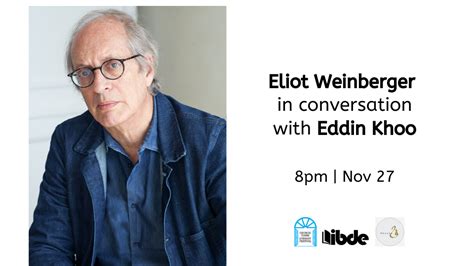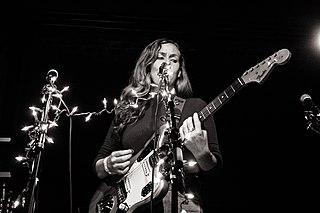A Quote by Edward Dahlberg
Look at this poet William Carlos Williams: he is primitive and native, and his roots are in raw forest and violent places; he is word-sick and place-crazy. He admires strength, but for what? Violence! This is the cult of the frontier mind.
Related Quotes
One of the appeals of William Carlos Williams to me is that he was many different kinds of poet. He tried out many different forms in his own way of, more or less, formlessness. He was also a poet who could be - he was a love poet, he was a poet of the natural order and he was also a political poet.
The major poets of New Jersey have all suffered, whether it's Whitman, who lost his job for 'Leaves of Grass,' or William Carlos Williams, who was called a communist, or Ginsberg, whose 'Howl' was prosecuted, or myself. If you practise poetry the way I think it needs to be done, you're going to put yourself in jeopardy.
I visited Paterson many years ago - 20 some years ago as a kind of day trip because of William Carlos Williams, because of Allen Ginsberg having lived there. And I went to the Great Falls and sat really in the exact same spot as Adam Driver does as Paterson. And I walked around the factory buildings, and I was rereading - I was reading at the time the epic length poem "Paterson" by Williams.
More and more, as civilization develops, we find the primitive to be essential to us. We root into the primitive as a tree roots into the earth. If we cut off the roots, we lose the sap without which we can't progress or even survive. I don't believe our civilization can continue very long out of contact with the primitive.
I know now that he who hopes to be universal in his art must plant in his own soil. Great art is like a tree, which grows in a particular place and has a trunk, leaves, blossoms, boughs, fruit, and roots of its own. The more native art is, the more it belongs to the entire world, because taste is rooted in nature. When art is true, it is one with nature. This is the secret of primitive art and also of the art of the mastersMichelangelo, Czanne, Seurat, and Renoir. The secret of my best work is that it is Mexican.
There's always been what I would call the William Carlos Williams strain, in which poems of simplicity and clarity are valued by a different community. I was talking to Galway Kinnell one day, and he said that there was an audience for poetry up until about 1920 and then, from that point on, the poets and the critics drifted.
Victory attained by violence is tantamount to a defeat, for it is momentary.It is better to be violent, if there is violence in our hearts, than to put on the cloak of nonviolence to cover impotence. Violence is any day preferable to impotence. There is hope for a violent man to become non-violent. There is no such hope for the impotent.
A township where one primitive forest waves above while another primitive forest rots below,--such a town is fitted to raise not only corn and potatoes, but poets and philosophers for the coming ages. In such a soil grew Homer and Confucius and the rest, and out of such a wilderness comes the Reformer eating locusts and wild honey.






































